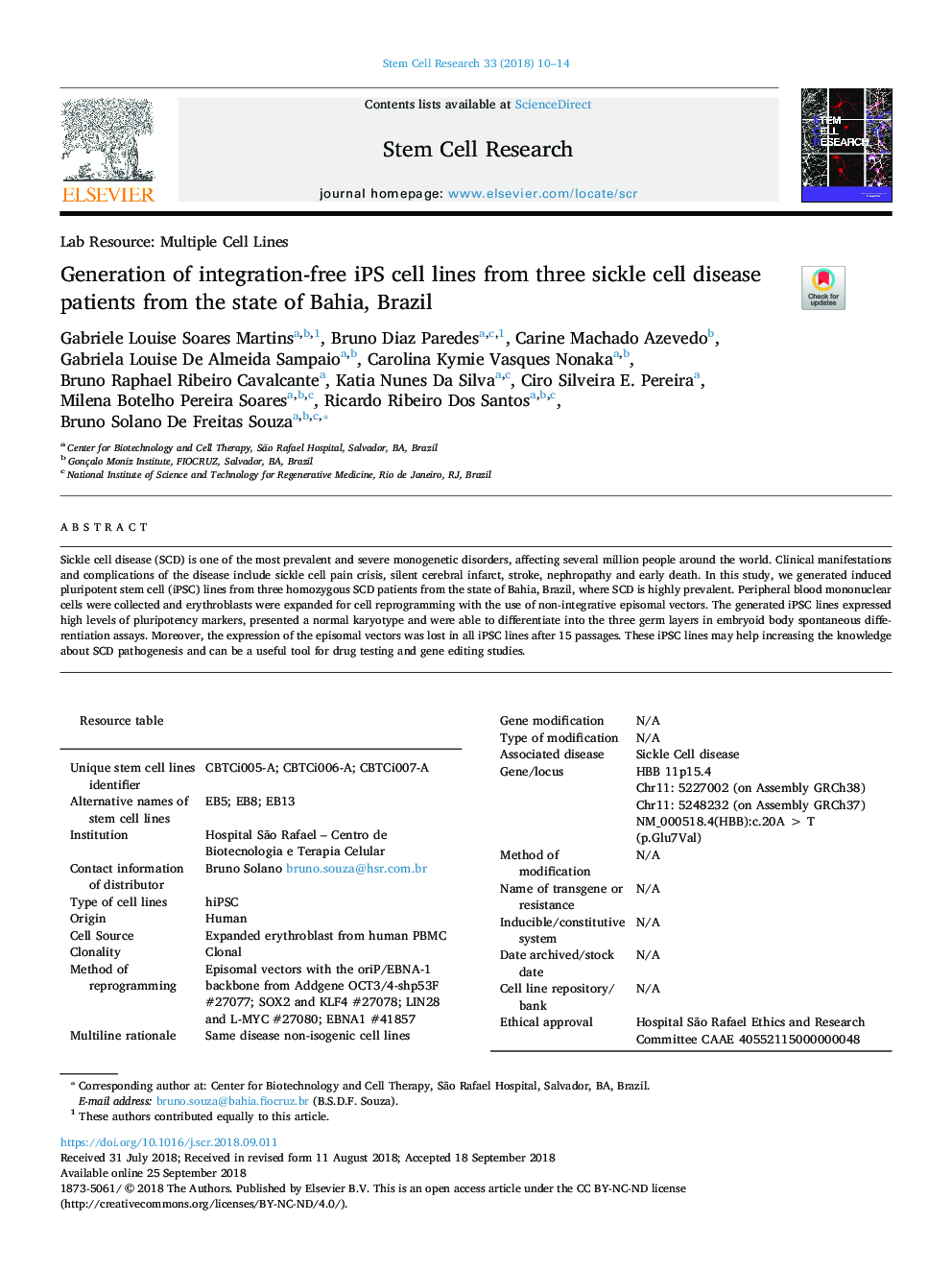| Article ID | Journal | Published Year | Pages | File Type |
|---|---|---|---|---|
| 11010776 | Stem Cell Research | 2018 | 5 Pages |
Abstract
Sickle cell disease (SCD) is one of the most prevalent and severe monogenetic disorders, affecting several million people around the world. Clinical manifestations and complications of the disease include sickle cell pain crisis, silent cerebral infarct, stroke, nephropathy and early death. In this study, we generated induced pluripotent stem cell (iPSC) lines from three homozygous SCD patients from the state of Bahia, Brazil, where SCD is highly prevalent. Peripheral blood mononuclear cells were collected and erythroblasts were expanded for cell reprogramming with the use of non-integrative episomal vectors. The generated iPSC lines expressed high levels of pluripotency markers, presented a normal karyotype and were able to differentiate into the three germ layers in embryoid body spontaneous differentiation assays. Moreover, the expression of the episomal vectors was lost in all iPSC lines after 15 passages. These iPSC lines may help increasing the knowledge about SCD pathogenesis and can be a useful tool for drug testing and gene editing studies.
Related Topics
Life Sciences
Biochemistry, Genetics and Molecular Biology
Biotechnology
Authors
Gabriele Louise Soares Martins, Bruno Diaz Paredes, Carine Machado Azevedo, Gabriela Louise De Almeida Sampaio, Carolina Kymie Vasques Nonaka, Bruno Raphael Ribeiro Cavalcante, Katia Nunes Da Silva, Ciro Silveira E. Pereira,
